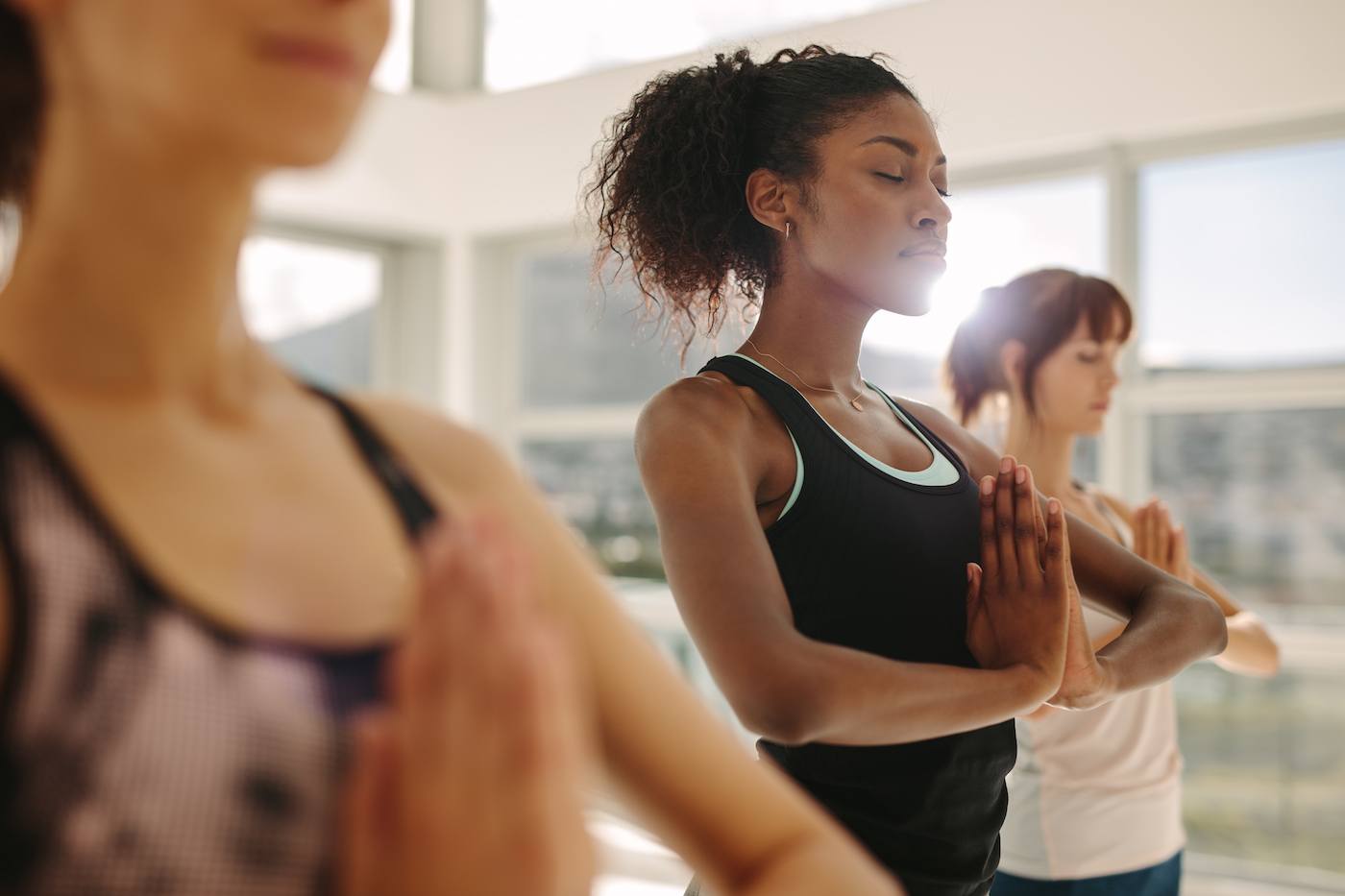3 Psychologist-Approved Tips for Dealing With Social Anxiety at the Gym
"Social anxiety is comparing yourself to everyone else—you become overly concerned with what other people are thinking," says Lani Lawrence, Psy.D, Association for Applied Sport Psychology (AASP) representative and clinical and sports psychologist. "With athletes facing it, anxiety and other things may inhibit their performance—there are times when they have a hard time competing in front of others, so it's definitely something to deal with in terms of performance."
But if you're not, say, running a sprint in front of a stadium audience, you can still face the same level of anxiety that prevents you from performing the way you'd like. "This involves a lot of over-thinking, worrying, and negative thoughts and self-talk," explains Lawrence on how social anxiety can affect you at the gym. And it's not just mental—the anxiety impacts your physical self, too. "Physically, you might have an elevated heart rate, tension in your muscles, excessive sweating, and uncontrollable breath," she says. "Physically, it feels awful and like you're out of control, but how scared you are on top of the negative, critical thinking hits you two-fold."

{{post.sponsorText}}
If this sounds like you, Lawrence stresses the fact that you have to focus on yourself rather than others. "In reality, no one is paying attention," she says. "Look at a class or exercising or a sport as an opportunity to grow and develop a skill or talent, focus on yourself, and with this growth mindset, seeing someone else perform well is no longer a threat." To conquer your social anxiety so that you can get your sweat on in peace, keep scrolling for Lawrence's advice.

How to handle social anxiety at the gym
1. Practice positive affirmations: Since having social anxiety can lead to negative self-talk, Lawrence says it's key to force positive thoughts into your mind to wash the bad ones out. "If you're saying, 'I'm no good, I can't do this,' pull those words out and create a person that's saying these things to you," she says. "You wouldn't want to be friends with that person. You want to talk to someone helpful and supportive of yourself, even if you're learning something new or doing something new at the gym." So pump up the positive self-talk and positive affirmations. "Be your own best friend and your own hype man—go into a new situation with a positive mindset," she says. It's easy to look at a new, intimidating workout class and think, "There's no way I'll survive"—but I can attest to how game-changing it can be if you tell yourself you're going to slay that workout.
2. Focus on yourself: As the saying goes, comparison is the death of joy. It's true. "When you're trying something new, you don't want to compare yourself to others—don't compare your practice reel to somebody else's highlight reel," says Lawrence. "If someone's doing better, it's because they've been doing it for awhile. Keep the focus inward on yourself and think about one or two skills you really want to learn and develop." Come up with workout goals that you want to accomplish and work towards them. "The more you focus on yourself and what you can control, the better you will perform," says Lawrence.
3. Use your breath: What can your breath not do? Add calming social anxiety at the gym to its long list of wellness benefits. "Practicing deep breathing and simple meditations is always beneficial and helpful—you always have your breath wherever you go. Before going to the gym or an exercise class, take 10 deep breaths to relax your body—it'll get it to that place of optimal performance zone," says Lawrence. "Your breath will take you to that middle ground where you're energized and motivated but not too overwhelmed or slowed down." Breathe in, breathe out, kick ass. Repeat.
Oh, and here are some books to help with social anxiety. And this is how caffeine intake can impact your anxiety.
Loading More Posts...